On the morning of November 20, local time, Chinese President Xi Jinping held talks with Brazilian President Luiz Inacio Lula da Silva in Brasilia, Brazil. The two heads of state announced the elevation of China-Brazil relations to building a China-Brazil community with a shared future for a more just world and a more sustainable planet.
During President Xi's state visit to Brazil, the two sides signed over 30 bilateral cooperation agreements spanning areas such as economy and trade, investment, agriculture, digital economy, sustainable development, science and technology, artificial intelligence, and global development cooperation. Among these agreements was the Memorandum of Understanding (MoU) between Tsinghua University and the Federal University of Rio de Janeiro for the "China-Latin America Youth Responding to Global Challenges" Program. This agreement has been included as one of the outcomes of President Xi's state visit to Brazil.
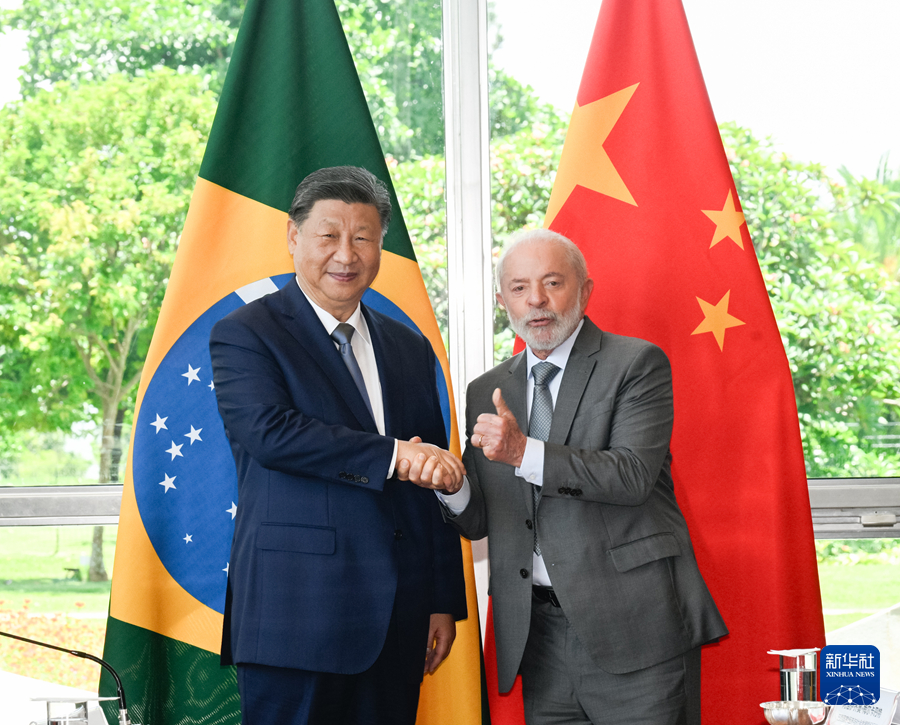
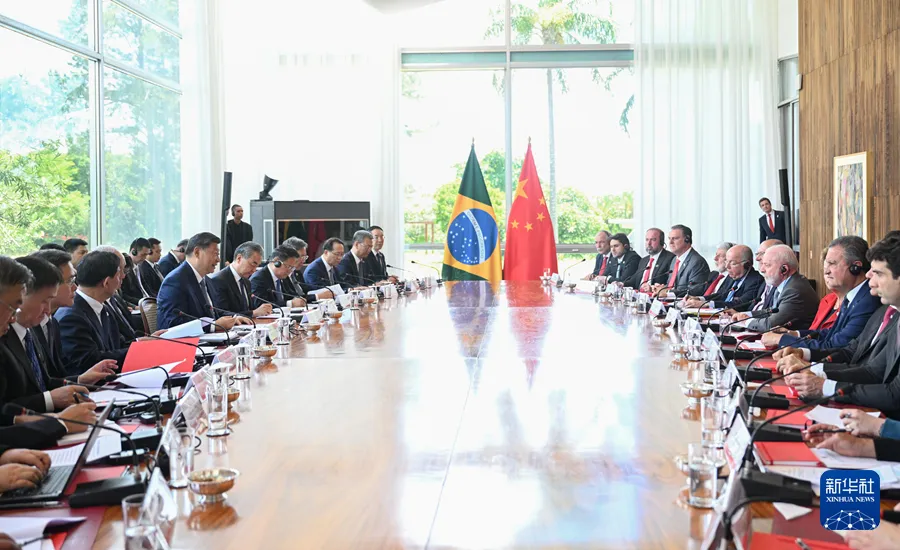
Chinese President Xi Jinping holds talks with his Brazilian counterpart Luiz Inacio Lula da Silva in Brasilia, Brazil, Nov. 20, 2024. (Xinhua/Li Xueren)
During President Xi Jinping’s visit to Rio de Janeiro to attend the 19th G20 Leaders’ Summit and his state visit to Brazil, Secretary of the CPC Tsinghua University Committee and Chairperson of the University Council Qiu Yong led a delegation to Brazil from November 17 to 21 local time. On behalf of Tsinghua University, Qiu signed a Memorandum of Understanding with the Federal University of Rio de Janeiro for the “China-Latin America Youth Responding to Global Challenges” Program. As one of the over 30 bilateral cooperation agreements signed during Xi's visit, this memorandum was included as one of the outcomes of his state visit to Brazil.
The China-Latin America Youth Responding to Global Challenges Program aims to unite youth from China and Latin America to address challenges in poverty alleviation and other sustainable development areas. A core component of the program, the Poverty Alleviation Challenge was initiated by Tsinghua University and jointly organized in its inaugural session with the Federal University of Rio de Janeiro and the Pontifical Catholic University of Chile. The program contributes innovative solutions to poverty alleviation efforts in developing countries worldwide while fostering intercultural exchange and mutual learning.
Going forward, the program will expand its scale and involve more youth participants. It will broaden its focus beyond poverty alleviation to include other sustainable development topics. By organizing joint competitions, collaborative courses, and co-research initiatives, the program will produce more outcomes of cross-cultural exchange and mutual learning, contributing to building a community with a shared future for mankind.
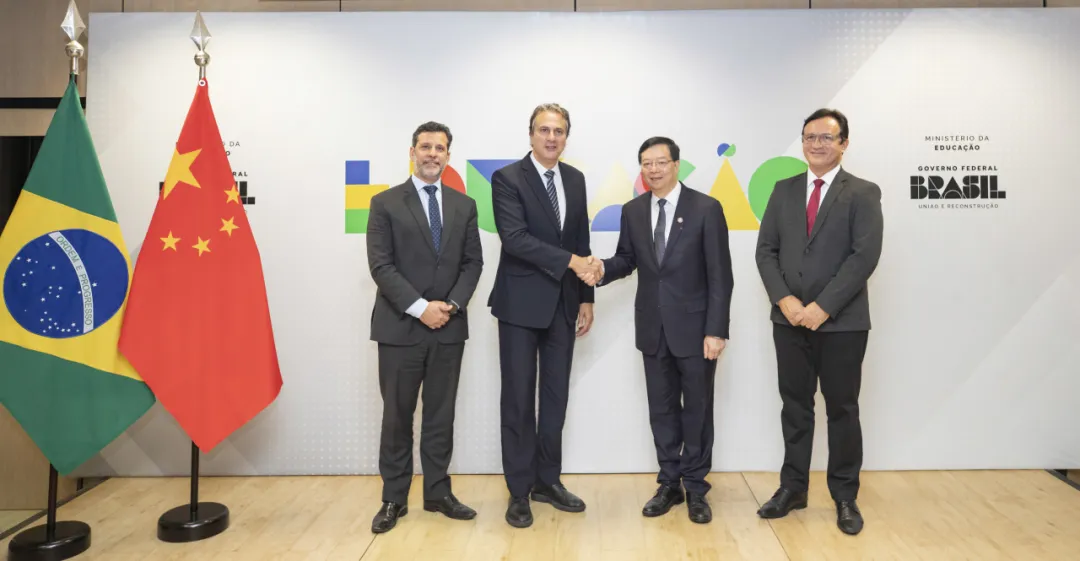
Qiu Yong (second from right) with Camilo Sobreira de Santana (second from left) and other attendees.
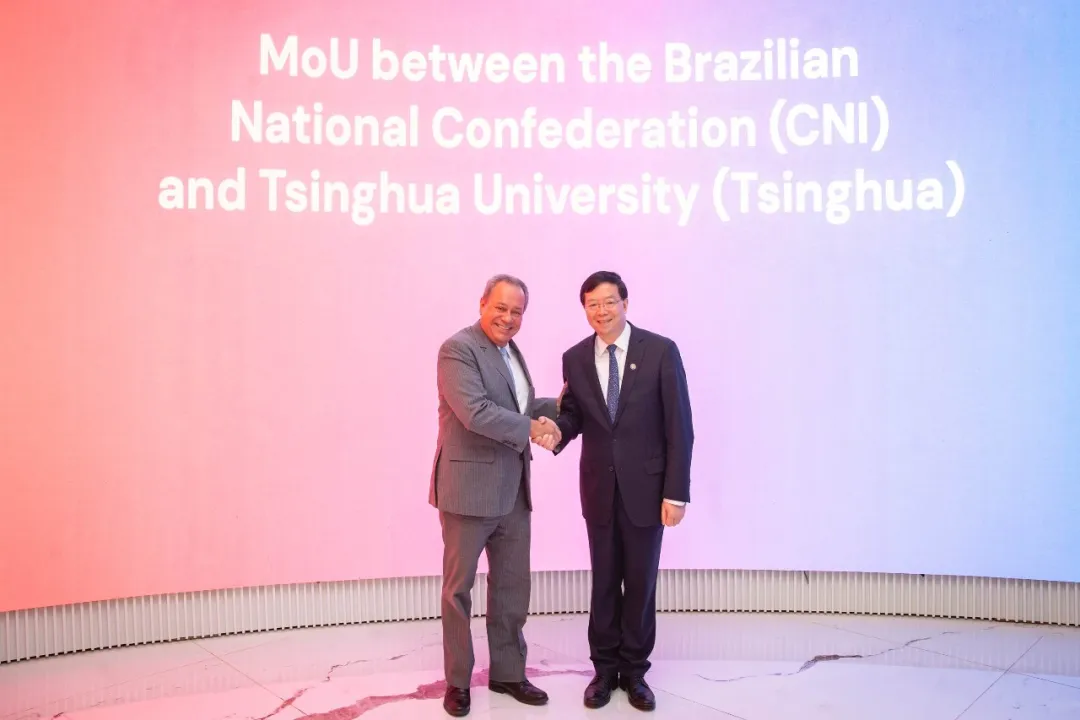
Qiu Yong (right) and Ricardo Alban reach a consensus on deepening collaboration.
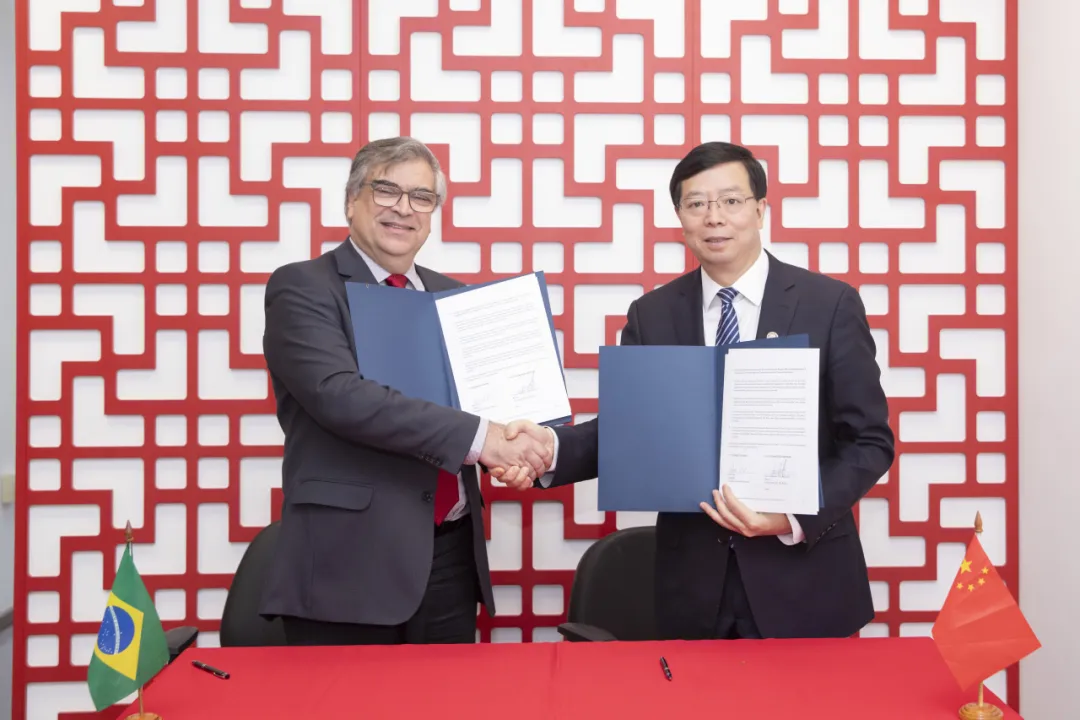
Tsinghua University enters a Memorandum of Understanding with the University of São Paulo.
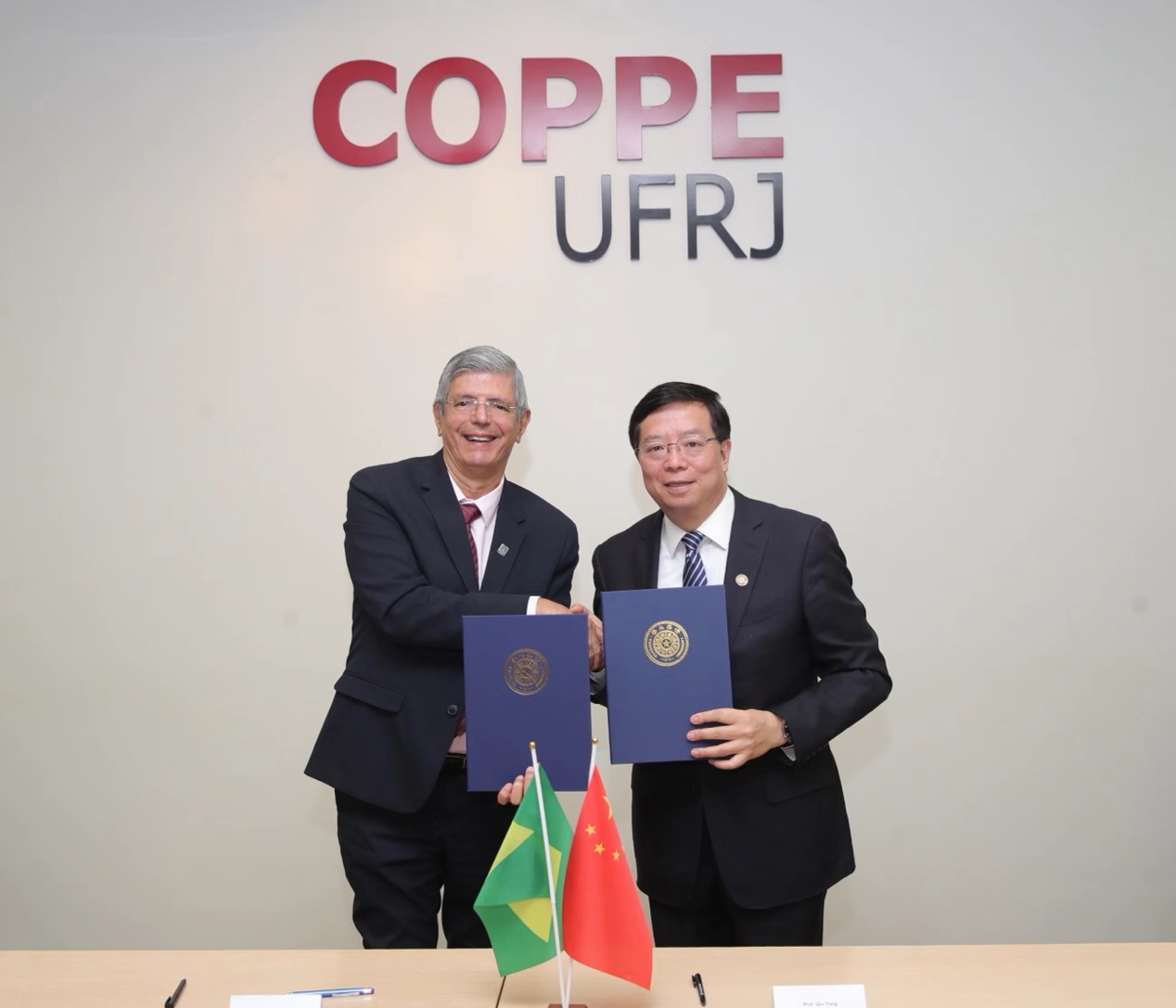
Tsinghua University signed a Memorandum of Understanding with the Federal University of Rio de Janeiro.
During the visit, Qiu met with Brazil’s Minister of Education, Camilo Sobreira de Santana. The two reached a consensus on strengthening collaboration between Tsinghua University and Brazilian universities and institutions. Additionally, he signed a MoU with Ricardo Alban, president of the Brazilian National Confederation of Industry (CNI), to deepen collaboration in education, science and technology, and economy and trade. Tsinghua also signed university-level agreements with the University of São Paulo, the Federal University of Ceará, and the Federal University of Rio de Janeiro.
Qiu also participated in the Tsinghua University-CNI Seminar and the Seminar on China-Brazil Collaboration for Promoting Bio-Industry and Sustainable Development. These efforts aimed to reinforce Tsinghua University's leading role in higher education and enhance collaboration with Brazil across various fields, including education, research, and people-to-people and cultural exchanges.
Through these initiatives, Tsinghua University contributes to building a China-Brazil community with a shared future for a more just world and a more sustainable planet.
Tsinghua places great importance on its cooperation with Brazil and other Latin American countries. The Tsinghua-UFRJ China-Brazil Center for Climate Change and Energy Technology Innovation was established with the support of both governments in 2010, with offices at Tsinghua and the Federal University of Rio de Janeiro. The center has since become a key platform for fostering educational, technological, and people-to-people and cultural exchanges in the fields of clean energy and climate change across China, Brazil, and Latin American countries.
In 2015, based on the prior cooperation under the support of the Ministry of Science and Technology, Tsinghua led the establishment of the China-Latin America Joint Laboratory for Clean Energy and Climate Change, with the Federal University of Rio de Janeiro as the Latin American lead institution. The joint laboratory has been recognized as a National International Science and Technology Cooperation Base by the Ministry of Science and Technology.
In 2018, Tsinghua established its Latin America Center in Santiago, Chile, to serve as an integrated platform for exchanges among governments, academia, think tanks, and enterprises from China and Latin America. Leveraging this center, the Latin American and Caribbean Ambassadors Convene at Tsinghua event has been held for four consecutive years, and the Poverty Alleviation Challenge has provided a platform for Chinese and Latin American youth to collaborate on solving pressing challenges.
Focused on cultivating global competence, the center has also facilitated winter and summer fieldwork opportunities for Tsinghua students and faculty in countries such as Chile, Brazil, and the Dominican Republic.
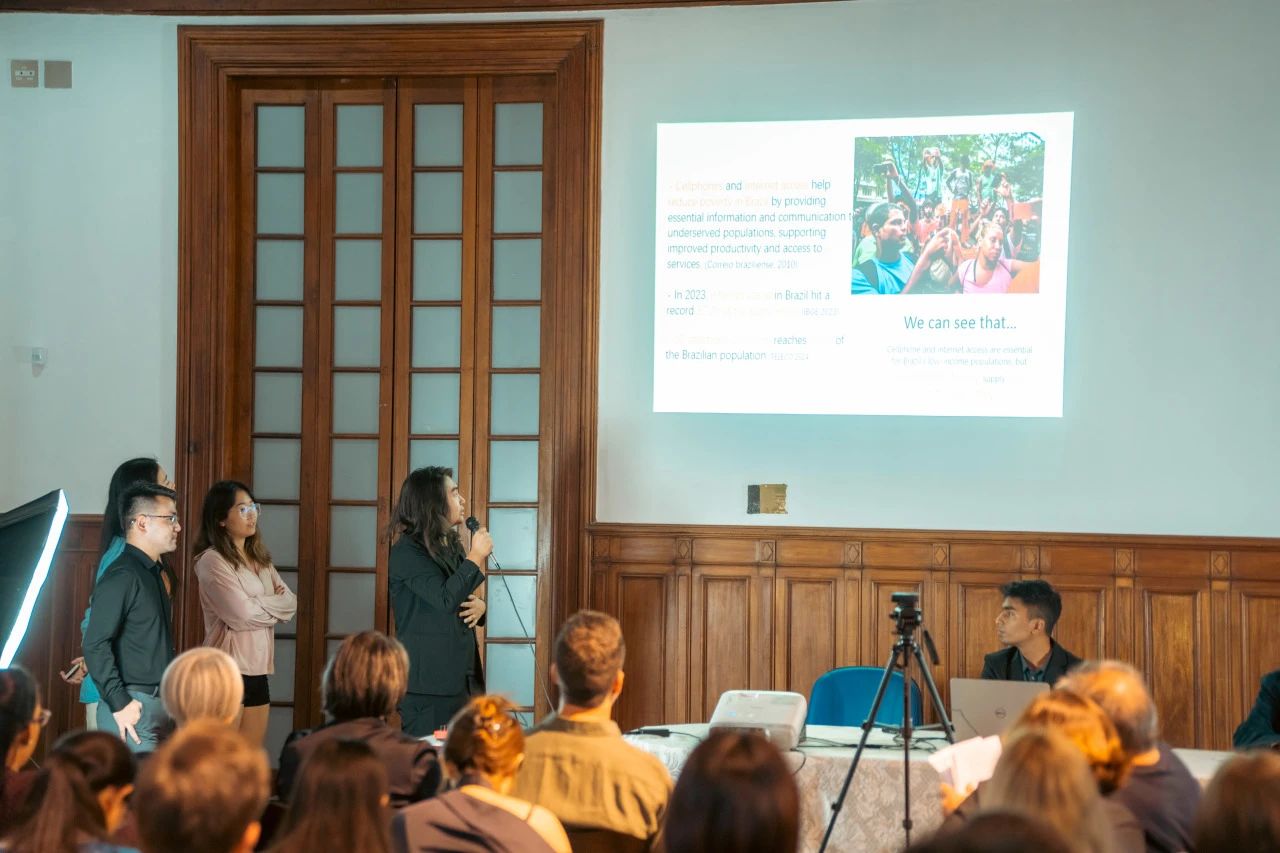
The final of "China-Latin America Youth Responding to Global Challenges-2024 Poverty Alleviation Challenge”, held in Brazil.
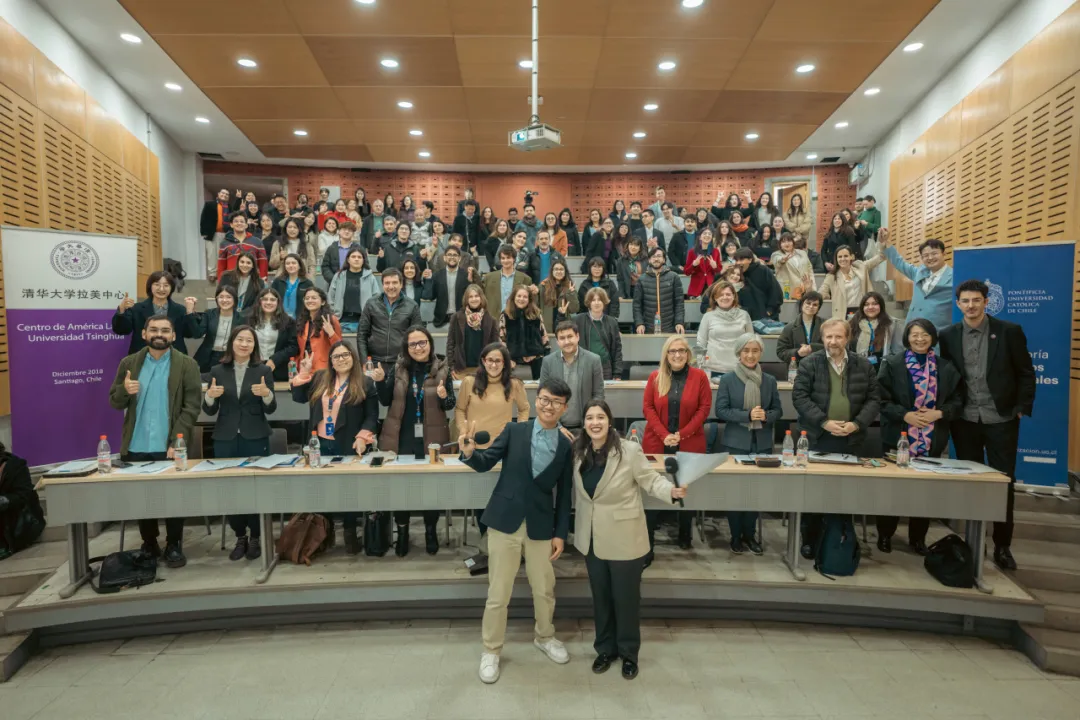
Group photo at the final of “China-Latin America Youth Responding to Global Challenges-2024 Poverty Alleviation Challenge (Chile)”
As part of the series of events celebrating the 50th anniversary of China-Brazil diplomatic relations, the final of “2024 Poverty Alleviation Challenge” concluded in August in Rio de Janeiro. Faculty and students from Tsinghua University and Brazilian universities explored innovative approaches and diverse strategies to address poverty, combining their academic expertise and cross-cultural perspectives.
The Poverty Alleviation Challenge is a core component of the China-Latin America Youth Responding to Global Challenges Program and the first poverty-focused initiative by a Chinese university to integrate case studies, innovative solution competitions, academic forums, and field research.
Writer: Evender Hsu
Editors: Li Han, JP

